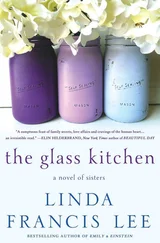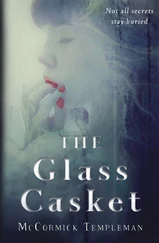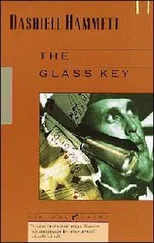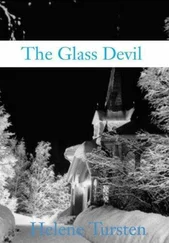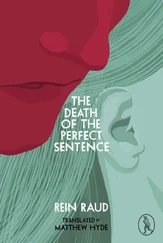SOPHIA DOVE UNDER Shadrack’s heavy oak desk, dragging Theo with her. From the library there was no view of the side door, but as soon as whoever had entered the house came along the passageway they would be visible through the doorway. As it turned out, she didn’t have to wait that long.
“Fates protect us!” a woman’s voice cried out. “Mr. Elli! Sophia?”
“It’s our housekeeper,” Sophia told Theo as she scrambled out from under the desk. “I’m in the library, Mrs. Clay,” she called out. “In here.”
Mrs. Clay rushed into the library and stopped in the doorway, her eyes wide with fear. “What has happened here? Where is Mr. Elli?”
Sophia saw reflected in Mrs. Clay’s horrified expression the full scope of the destruction around her.
“We don’t know,” Theo replied when Sophia failed to answer. “He’s not here.”
Mrs. Clay turned to Theo, pausing as she took in his unexpected presence. “What do you mean? Who are you ?”
“He was taken a few hours ago,” Theo said. He gestured at the destruction. “By force.” Mrs. Clay stared at him uncomprehendingly. “Theodore Constantine Thackary,” he added. “Theo for short.”
“Who? Who took him by force?”
“Some men. I couldn’t really see them very well. They had a coach. The coach . . .”
Sophia turned to him. “What is it?”
“I just remembered that the coach had something painted on the side—an hourglass.”
“That’s something to go on, I guess,” she said, disappointed.
Mrs. Clay, seeming strangely relieved by the mention of several men and a coach, reached out for Sophia and embraced her. Her frantic terror seemed to have subsided. “I am so sorry, Sophia. So, so sorry. What can I do to help?”
“Well, Shadrack left me a note.”
“A note!” exclaimed Mrs. Clay. “Surely that’s a good sign. What did it say?”
“He said to take his atlas and go to Veressa.” Sophia looked down at the book cradled in her arms. “We were just trying to find it when we heard you come in.”
Mrs. Clay had an odd expression. “What? You’re sure? He said Veressa ?”
“Yes.”
“Show me,” she asked hoarsely.
Sophia put down the atlas and quickly retrieved the note from her drawing notebook. “It says ‘Go to Veressa.’” She looked at Mrs. Clay hopefully. “Do you know where that is? Do you think he might be there?”
Mrs. Clay took a deep breath and seemed to collect herself. “Sophia, this is so unexpected. I—I think there are some things I should tell you,” she said. She looked around. “Is the whole house this way?”
“No, they didn’t go upstairs.”
“Let’s go to my rooms, then, and get away from this terrible wreck. We will have something to eat, and I can tell you what I know. It might help.”
Sophia felt suddenly exhausted. She realized that the last thing she had eaten was the slice of bread on the way to Harding’s Supply. She was probably still trembling, in part, from hunger.
“Thank you, Mrs. Clay.” It gave her a pang to leave the library in such disorder, but she knew there was nothing else to be done now. She carefully tied her notebook closed and held it tightly along with Shadrack’s atlas.
The housekeeper’s third-floor apartment always made a striking contrast with the rest of the house; today, it did even more. The rooms were tidy and prettily arranged, with as much light as could be permitted through the open windows. A pale blue sofa dotted with white blossoms, a collection of empty birdcages, and a fragile white coffee table were the principal furnishings of her sitting room. Potted plants, many in bloom, dotted every surface: violets and palms and dozens of ferns. The air was thick with the smell of sun-warmed soil.
What always struck Sophia most was the sound—a light but constant tinkling, as if from hundreds of tiny bells. From every inch of the ceiling hung delicate sculptures: webs of thread strung with crystal, ceramic, and metal. The small globes, bells, mirrors, cylinders, and myriad other shapes turned slowly, colliding gently against one another and emitting a quiet chiming that filled the air. The sculptures almost gave the impression of living things, as if a flock of drowsy butterflies had come to rest in the rafters. Theo craned his neck to stare, fascinated. “I don’t like the silence,” the housekeeper explained to him. “I hope the noise doesn’t bother you.” She motioned toward the sitting room. “Why don’t you rest? I’ll just see about some coffee.”
Sophia perched herself on one of the chairs and tried not to think about what was waiting downstairs. The chimes soon began to have the soothing effect that was, no doubt, their intended purpose. She and Theo watched the sculptures turn slowly overhead as Mrs. Clay opened cupboards and set the kettle on the stove. “I’m sorry Shadrack won’t be able to help you,” Sophia finally said to Theo.
Theo shrugged. “That’s how it goes.”
“Is Ehrlach going to send someone after you?”
“No. He has no time,” Theo said with a half-smile. “He would have before, but now all he wants is to get in one last show in New York. The only good thing about the borders closing is that Ehrlach is out of business. Can’t really run a circus when every act in your show is illegal, can you? Although I guess,” he added, his smile fading, “he’ll just take the show somewhere else. People like the circus everywhere.”
Mrs. Clay came in with a tray, which she set on the low wooden coffee table. She’d brought cups and plates, butter and jam, and a loaf of brown bread with raisins. “I’ll be right back,” she said. When she returned with the coffee pot, she poured them each a cup and then sat back. She traced her temples with her fingertips and patted the bun at the nape of her neck, composing herself. Theo and Sophia ate hungrily. Sophia covered her brown bread with butter and jam and took big bites. As she sipped the warm coffee from its blue porcelain cup, she began to feel better.
“I’m afraid what I have to tell you is unpleasant,” Mrs. Clay began, focused on something neither of them could see at the bottom of her cup. “These are very painful memories for me. But Shadrack has told you to find Veressa, and I should explain to you why I can’t ever return to the Baldlands.”
Theo leaned forward. “You’re from the Baldlands?”
Mrs. Clay met his eyes. “Yes.”
“So am I.”
“I thought you might be. So I’m sure, once you hear my story, you’ll understand the difficulty I’m in. But to Sophia it is all new, and it will take some explaining. People here sometimes have trouble believing what it’s like outside—in the other Ages.”
Sophia drew her legs up underneath her on the velvet chair. Mrs. Clay’s voice, high-pitched and fluttery, echoed the quiet tinkling of the chimes overhead. “I don’t know how much your uncle has told you,” Mrs. Clay began, “about when we knew each other in the Baldlands.”
“He told me about the academy. That he studied there—for a couple of years, a long time ago. And that you worked there. Not much else.”
“That is correct. Many years ago, he was a student at the Royal Cartological Academy in Nochtland—the capital of the Baldlands and the largest city of the Triple Eras. You’ve never been to the Baldlands, Sophia, so it’s very hard to explain what it’s like, but I’m sure you’ve read about it and heard about it from your uncle.”
Sophia nodded.
“It has many regions, and each region contains many former Ages. Nochtland, where I am from, is a beautiful place—sometimes I miss it so much. I miss the gardens. And how, when it rains, it really rains. And the pace, so much slower and calmer.” She sighed. “But it’s also a terrible place. It’s a place where anything can happen and everything can change.” She shook her head, as if to clear her mind. “Let me tell you the story from the beginning.
Читать дальше




